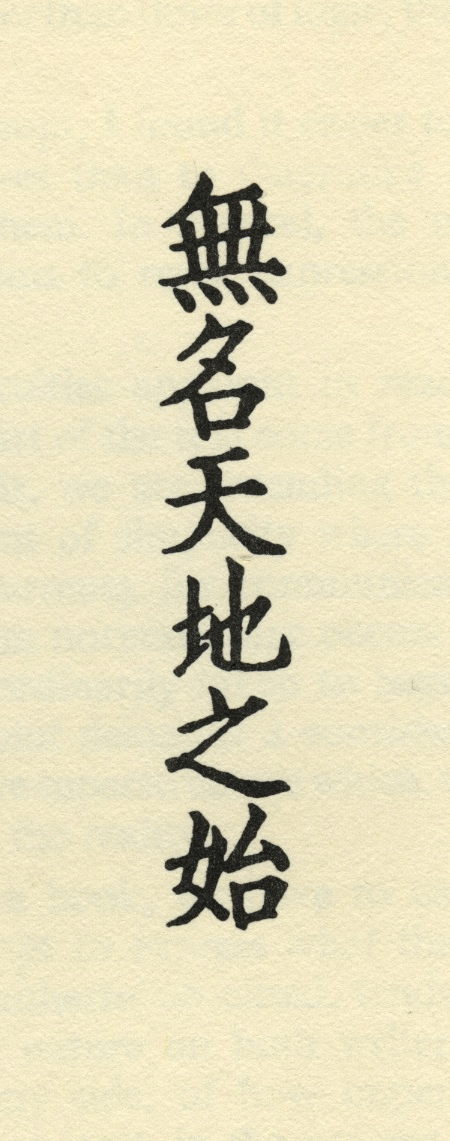
When I opened G. Spencer Brown’s ‘Laws of Form‘ (and here and here and here) book for the first time, I immediately made the link with the film ‘Wu Ming’ by James Whitney, because both film and book open with the same quote from the ‘Tao Te Ching’. ‘Wu Ming’ is one of the three later films by James Whitney; films that are much less well-known than for instance ‘Yantra’ or ‘Lapis’, mainly because there have never been film prints in circulation as far as I know. I had the privilege to see ‘Wu Ming’ a couple of times and it is a film that has profoundly marked me. It also made a lot of sense to me that this book and this film would have a connection, since they are a both works dealing with self-reference and the idea of making a distinction in a void.
Now this connection I suspected was finally confirmed, thanks to a very friendly Canadian librarian who provided me with a copy of ‘Towards Being Choicelessly Aware, Conversations with James Whitney’, an unpublished interview between T.Teramaye and James Whitney from 1974, which might actually be a text written by James Whitney in the form of a dialogue. In it, he talks about most of his films in some detail and he says the following about the quote in ‘Wu Ming’ and ‘Laws of Form’:
“Titles are fun to do and it offers more bits of information to fill out the system. At this time, I was reading G. Spencer Brown’s ‘Laws of Form.’
The six Chinese characters from the Tao Te Ching were reproduced opposite the first page of the text. I got the message immediately. The ‘o’ was obviously implied and the vertical alignment of the characters indicated a ‘1’. The characters from top to bottom loosely translate as ‘No Name is the beginning of Heaven and Earth.’ The original idea fro the film came instantaneously four years ago, but it was proceeding slowly. The discovery of the six characters clarified what this film was about and it also pointed to the next film.
So here is what I had…
(Wu Ming/No Name) pointing back to the first ‘distinction’ – a meditation on ’emptiness’ – particular universe, One Turn.
“Unus = one, vertere = turn. Any given (or captivated) universe is what is seen as the result of a making of one turn, and thus is the appearance of any first distinction, and only a minor aspect of all being, apparent and non-apparent. Its particularity is the price we pay for its visibility.””
(The quote within this quote of James Whitney is from ‘Laws of Form’)
Elsewhere in the interview he gives an interesting one-line summary of the film: ‘in as particle, out as wave’, and also a description of the soundtrack he envisioned at the time, but which I have not heard when seeing the film. But as I was reading this text for the first time, the biggest new insight was that (if you stretch the facts a bit) my favourite film turns out to be a film adaptation of my favourite book.
